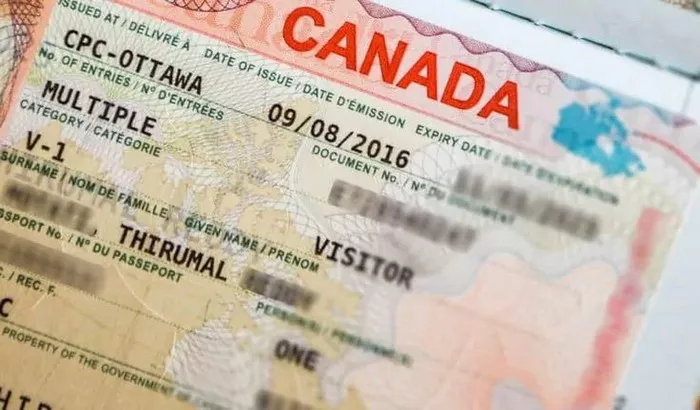Canada, with its diverse culture, strong economy, and high quality of life, is an attractive destination for individuals seeking to relocate. Whether for work, study, or to reunite with family, moving to Canada requires a thorough understanding of the immigration process and its requirements. In this comprehensive guide, we delve into the various pathways and criteria for immigrating to Canada, ensuring prospective immigrants are well-equipped to navigate the complexities of the immigration system.
Understanding Canada’s Immigration Programs
Canada offers several immigration pathways, each tailored to different categories of individuals, including skilled workers, students, entrepreneurs, and family members. The main immigration programs include:
1. Express Entry: Designed for skilled workers, the Express Entry system manages applications for three federal economic immigration programs: the Federal Skilled Worker Program, the Federal Skilled Trades Program, and the Canadian Experience Class. Applicants are assessed based on factors such as age, education, work experience, language proficiency, and adaptability.
2. Provincial Nominee Programs (PNPs): Each Canadian province and territory operates its own PNP, allowing them to nominate individuals who meet specific criteria and intend to settle in that province or territory. PNPs target various categories, including skilled workers, entrepreneurs, and international graduates.
3. Family Sponsorship: Canadian citizens and permanent residents can sponsor their family members, including spouses, partners, dependent children, parents, and grandparents, for permanent residency in Canada.
4. Study Permits: International students can obtain study permits to pursue education at designated learning institutions in Canada.
5. Work Permits: Individuals with a job offer from a Canadian employer may be eligible for a work permit, which allows them to work and live in Canada temporarily.
Meeting the Basic Requirements
Regardless of the immigration program, certain basic requirements must be met to be eligible for immigration to Canada:
1. Admissibility: Applicants must be admissible to Canada, which involves passing medical exams, security screenings, and criminal background checks.
2. Language Proficiency: Proficiency in English or French is essential for most immigration programs. Applicants are typically required to demonstrate their language skills by taking approved language tests such as the IELTS or CELPIP for English, and the TEF or TCF for French.
3. Educational Credential Assessment (ECA): Applicants with foreign educational credentials may need to undergo an ECA to have their credentials assessed and verified by designated organizations in Canada.
4. Proof of Funds: Applicants may need to demonstrate that they have sufficient funds to support themselves and their families in Canada, particularly if they are applying under programs that do not require a job offer.
Additional Requirements for Specific Immigration Programs
In addition to the basic requirements, each immigration program may have specific criteria and additional requirements that applicants must meet:
1. Express Entry: Applicants under the Express Entry system are awarded points based on the Comprehensive Ranking System (CRS), which evaluates factors such as age, education, work experience, language proficiency, and adaptability. Meeting the minimum CRS score is essential for receiving an Invitation to Apply (ITA) for permanent residency.
2. Provincial Nominee Programs (PNPs): Each PNP has its own set of eligibility criteria and application process. Requirements may vary depending on the province or territory, and may include factors such as job offer, work experience, language proficiency, and ties to the province.
3. Family Sponsorship: Sponsors must meet certain eligibility criteria, including being a Canadian citizen or permanent resident, meeting minimum income requirements, and signing an undertaking to financially support the sponsored family member for a specified period.
4. Study Permits: Applicants must have a letter of acceptance from a designated learning institution in Canada, prove that they have sufficient funds to cover tuition fees and living expenses, and satisfy other requirements such as a clean criminal record.
5. Work Permits: Requirements for work permits vary depending on the type of work being performed and the specific circumstances of the applicant. In most cases, applicants must have a job offer from a Canadian employer and may need to obtain a Labour Market Impact Assessment (LMIA) or fulfill other requirements.
Navigating the Application Process
Once eligibility requirements are met, applicants must navigate the application process, which can be complex and time-consuming. Key steps in the application process include:
1. Gathering Documents: Applicants must gather and submit various documents to support their application, including identification documents, educational credentials, language test results, and proof of funds.
2. Submitting Application: Depending on the immigration program, applicants may need to submit their application online through the Immigration, Refugees and Citizenship Canada (IRCC) website or by mail to a designated processing center.
3. Biometrics and Medical Exams: Applicants may be required to provide biometrics (fingerprints and photograph) at a designated biometric collection service point and undergo medical exams conducted by approved panel physicians.
4. Interviews and Additional Screening: Some applicants may be required to attend interviews or provide additional information or documentation as part of the screening process.
5. Waiting for Decision: After submitting the application, applicants must wait for a decision from IRCC, which may take several months depending on the immigration program and processing times.
Seeking Professional Assistance
Given the complexities of Canada’s immigration system, many applicants choose to seek assistance from immigration consultants or lawyers who specialize in Canadian immigration law. These professionals can provide valuable guidance and assistance throughout the application process, ensuring that applicants meet all requirements and navigate potential challenges effectively.
Conclusion
Immigrating to Canada offers numerous opportunities for individuals seeking a better quality of life, educational opportunities, or professional advancement. By understanding the various immigration programs, meeting eligibility requirements, and navigating the application process effectively, prospective immigrants can realize their dream of making Canada their new home. With careful planning and preparation, the path to Canada can be navigated successfully, opening doors to a brighter future in one of the world’s most welcoming and diverse countries.


